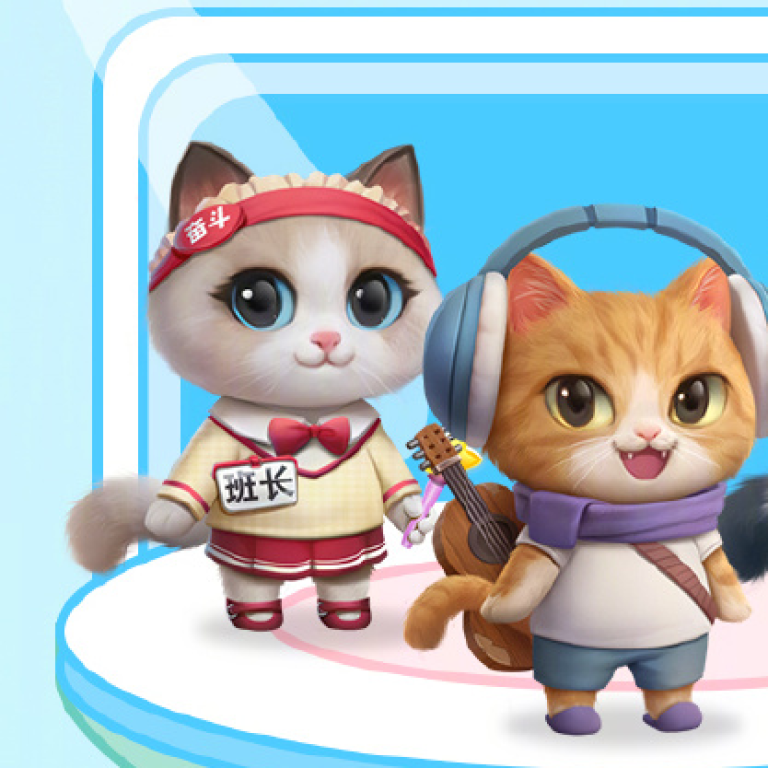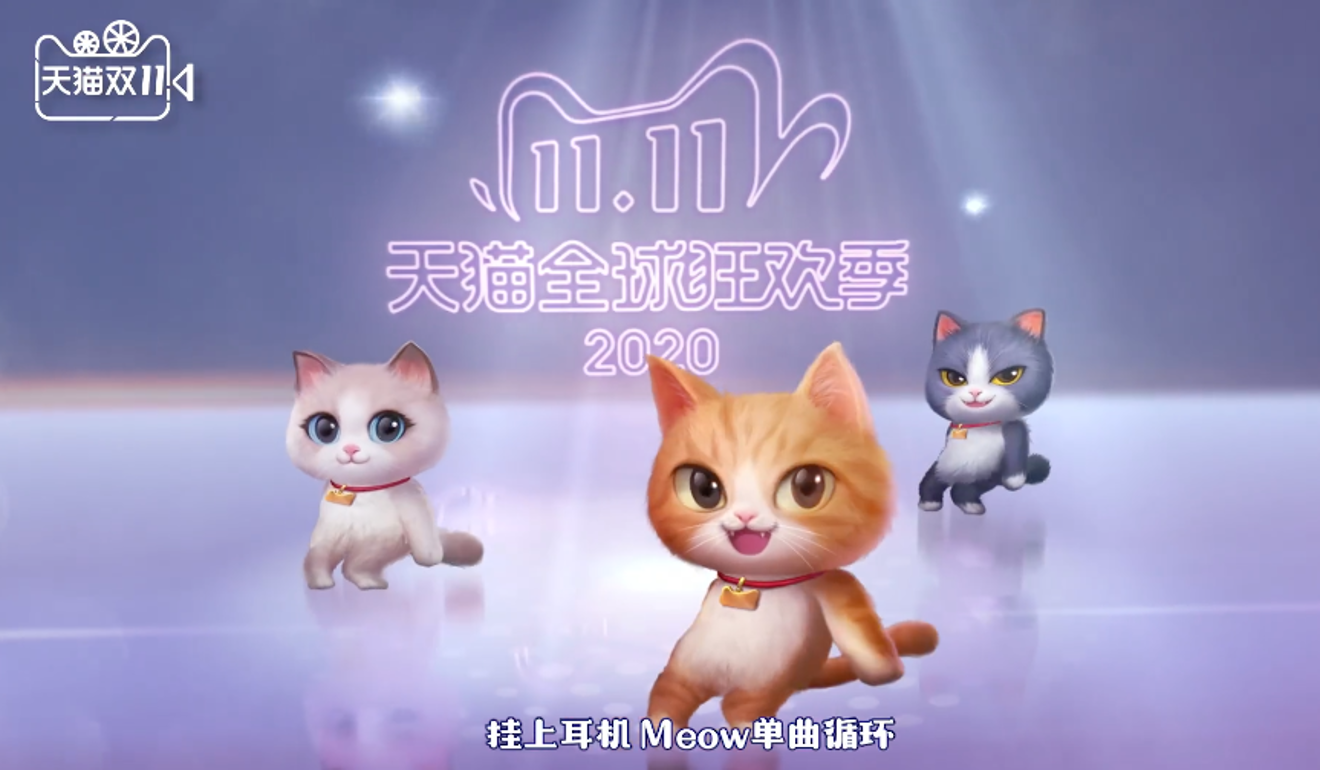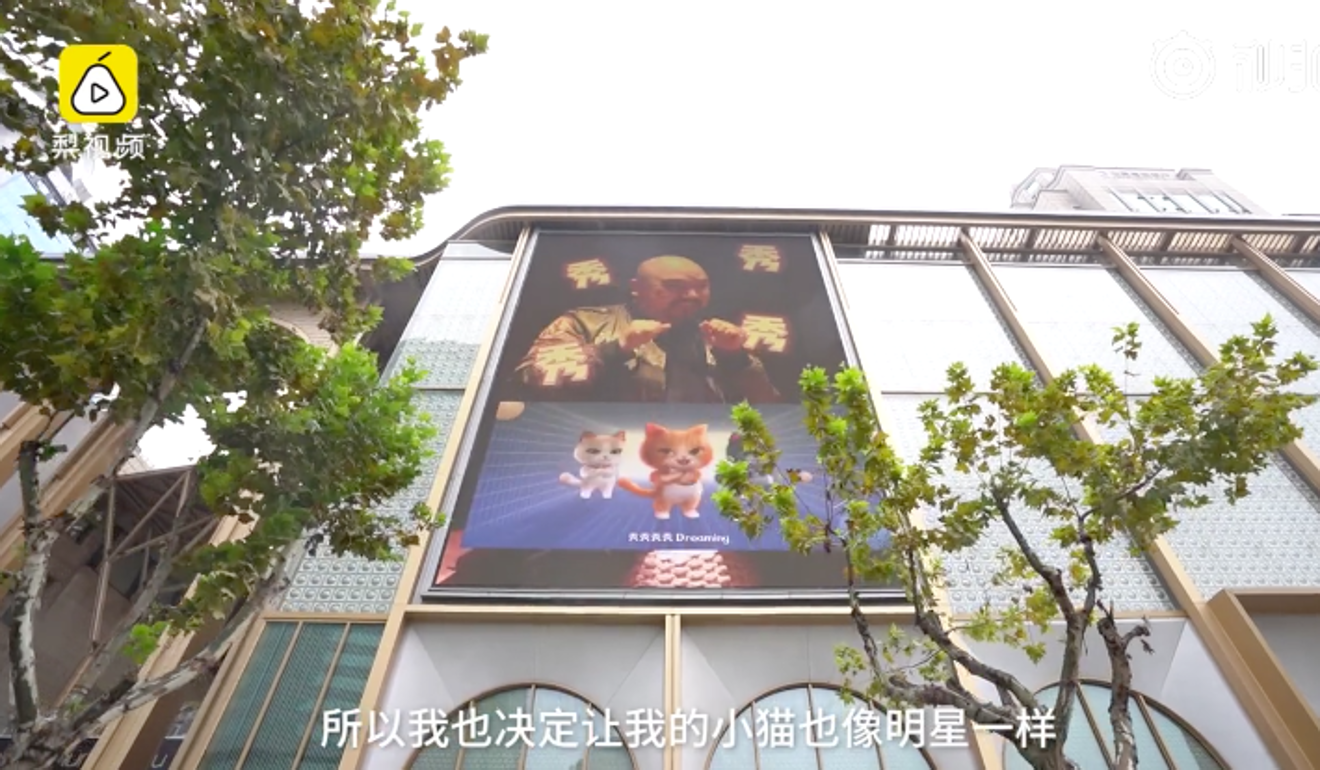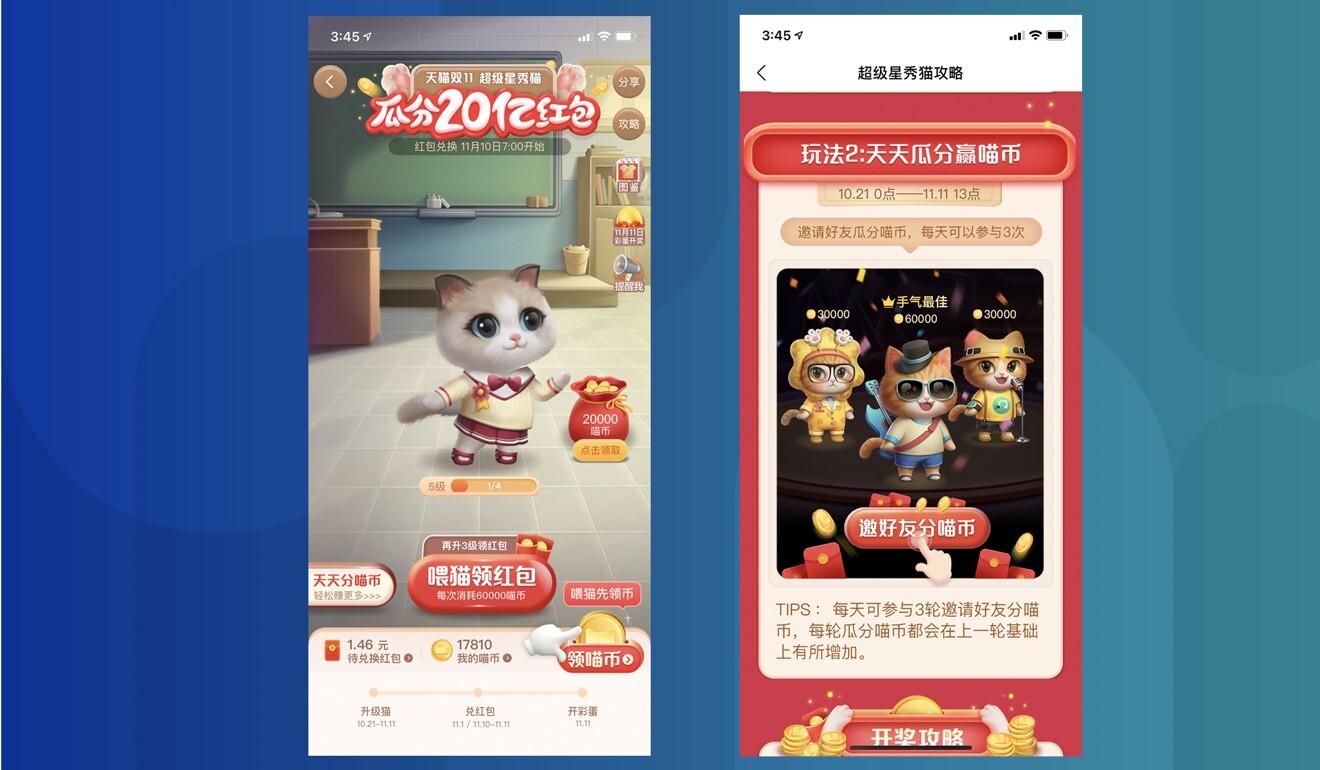
Singles’ Day: Mini games keep shoppers coming back for more on Taobao and JD.com
- E-commerce platforms in China are gamifying the world’s largest shopping festival to keep shoppers spending more time in their apps
- Getting friends to join a team can lead to even bigger deals, but some people on social media liken the sharing feature to spam
Since late October, Mao Biying has been spending four to five hours every day feeding and dressing up a virtual cat on her smartphone. But the college student based in China’s Hebei province, who asked to go by a pseudonym, was not playing for the sake of caring for a digital pet. What she was really after were coupons for products sold during the world’s biggest shopping festival, Singles’ Day.
Playing games has increasingly become part of China’s online shopping experience in recent years as e-commerce platforms compete for consumers’ attention against a plethora of other online entertainment options. With in-app mini games, shoppers compete for the best deals possible during Singles’ Day, China’s massive shopping bonanza on November 11 that saw shoppers spend US$38.4 billion last year.
“In general, e-commerce in China has become more than just filling your cart and clicking ‘checkout’. It is becoming even more engaging and social,” said Allison Malmsten, China market analyst at Daxue Consulting. “Many mobile users shop as a form of entertainment, and brands are getting more competitive to keep and maintain user attention. Selling products alone just doesn’t cut it any more.”
What you need to know about China’s Singles’ Day online shopping festival
While some platforms are finding success with these games, they also risk alienating some consumers fatigued by what they perceive as spam from constant invitations to play the games.
But the rewards are too enticing for shoppers and platforms alike. Two of China’s largest e-commerce platforms, JD.com and Alibaba Group Holding’s Taobao, said they are each distributing 2 billion yuan (US$301.8) through virtual games this year. Alibaba is the parent company of the South China Morning Post.

Taobao said it will be distributing the money in “red packets”, or shopping coupons, through a game in which players level-up virtual cats. JD’s coupons will be distributed through a mini game in which players open virtual shops across different Chinese cities.
In Taobao’s game, which is what Mao was playing, users earn virtual coins and spend them on feeding their virtual cats. Players can also dress up their cats as they level up, and they can team up with other players to win group coupons. More generous coupons are available once a cat reaches a certain level.
Taobao’s virtual cat game has even more players than that, Chinese media IT Home reported, although Alibaba suggested in the report that people should not make that kind of comparison. During last year’s Singles’ Day shopping festival, a game on Taobao that let users build skyscrapers to earn coupons reportedly drew in more than 400 million users, which was nearly half of all internet users in China.
Too complicated? Singles’ Day frustrates some shoppers
Even though these mini games are supposed to help consumers find deals, some people are still finding ways to spend money on them.
In Hangzhou, a man in his 40s surnamed Song, loved his virtual Taobao cat so much that he rented an advertising screen at a local shopping centre to showcase his digital pet, local media Pear Video reported. In a video interview, Song said he is a fan of erciyuan, a broad Chinese term for anime, comic and games (ACG) culture. While he said he used to like Luo Tianyi, China’s most popular virtual anime idol, he now prefers his virtual cat, which he named Taotao.
“Many fans of celebrities are supporting them by spending money to put them on [advertising] screens,” Song said. “I decided to let my cat be like a star and have more people know about it.”

Even with so many devoted users, it is still not clear whether platforms are seeing a positive return on their investments, said Ashley Dudarenok, founder of China marketing agencies Alarice and ChoZan. That is because the games are expensive to build and promote. There is also increasing competition from other types of platforms.
“Previously there were still some outlets that just wanted to entertain you, but right now, every outlet – social media, games, whatever – they want to sell to you,” Dudarenok said. “E-commerce platforms are losing some people over that in terms of the time spent on their platform.”
Gamifying the shopping experience might make shopping apps more sticky. But Malmsten said there is another benefit: social e-commerce. The apps incentivise sharing with friends in exchange for rewards, exposing consumers to more shops and deals that they otherwise might not have seen, Malsten said.
Singles’ Day sales start strong as China’s domestic consumption recovers
In Taobao’s game, inviting friends to team up is a big part of how users get more coins. Other tasks users can complete to earn more coins include watching a merchant’s live stream, searching for certain product categories, and spending at least 15 seconds browsing a certain brand’s store or a product recommendation page.
Being able to play with friends is precisely why some people keep returning. That is why a tech worker in Hubei province, who declined to be named, said he enjoys the Taobao game even though he said he does not think the game itself is very fun.
One engaging aspect of the game focuses on trying to gain “popularity” for the virtual cat. Popularity is a metric used in the game that can be increased in a variety of ways, including by inviting other players to visit your page. When two teams battle against each other for coupons, the one with more popularity wins.
The man from Hubei said he and his friends “tried every way possible” to increase popularity and get better deals as a team.
“One of my teammates found a way to accompany her downstairs neighbour for a walk and eventually asked them to help add popularity to her cat,” he said.

But not everybody is pleased with these kinds of games on shopping platforms. For people who do not want to play, the sharing function can be more annoying than enticing. Some people complain that the feature is spamming their social media platforms.
This has led some players to look for strangers to play with to avoid annoying family and friends.
“I don’t want to waste my valuable energy for a few bucks any more,” one user posted on Zhihu. “Everything else has better returns than this.”
“I play for as long as it takes to complete the tasks every day,” said one college student based in Hangzhou, who declined to give her name. “It’s not worth it, but being poor, I’m still happy [to play it].”

